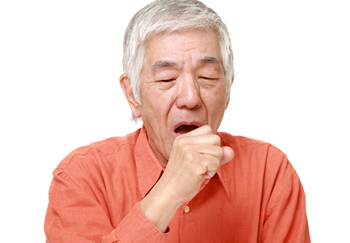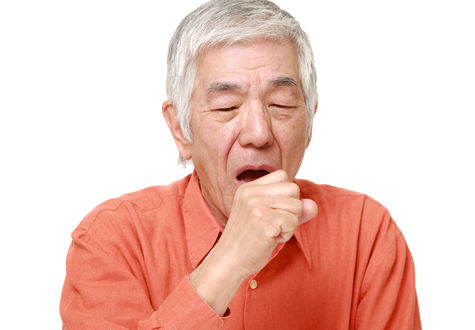
When presidential candidate Hillary Clinton fell prey to pneumonia recently, questions about the seriousness and implications of her illness permeated the media. We also wondered if we knew as much about the illness as we thought we did.
We sought answers from Katharine DeGeorge, MD, MS, a UVA family medicine physician voted “Best General Practitioner” in C-Ville Weekly’s Best of C-Ville 2015 and 2016, who gave us some insight.
What were your first thoughts when you heard Clinton had pneumonia? “Oh dear” or “no big deal”? Or “of course, she’s probably exhausted”?
No big deal.
Why?
Because pneumonia is fairly common, and the vast majority of otherwise healthy patients will recover and be able to go about their business within a few weeks.
What exactly is pneumonia?
Regardless of whether it’s a viral or bacterial organism causing the infection, pneumonia occurs when the infectious organisms group together in the lungs along with immune cells that are trying to fight the infection and interfere with normal lung function and can block the flow of oxygen.
Sometimes people get the flu and pneumonia confused – Bill Clinton called his wife’s condition the flu, for instance. What’s the difference, and which is worse?
It’s easy to get them confused. Both are common respiratory illnesses that:
- May cause fever, cough and excessive fatigue
- Have the potential to cause serious illness or even death, though most people fully recover
A simple chest X-ray can help us make the correct diagnosis if we aren’t certain after a good history and physical exam. Making the right diagnosis is important because it often affects our treatment plans.
Flu vs. Pneumonia
The flu:
- Caused by a virus – so antibiotics won’t help
- Infects nose, throat and lungs
- Symptoms vary but can include fever, chills, cough, headache, muscle and joint pain, sore throat, nasal congestion, general fatigue, and even diarrhea or vomiting (mainly in kids) and last about 3-7 days
- No shortness of breath in uncomplicated cases
- More contagious than pneumonia
- People usually get better on their own with rest, fluids and over the counter medications
- Can develop into pneumonia in more serious cases
Pneumonia:
- Most often caused by a bacteria
- Affects the lower respiratory tract and lungs
- Symptoms that distinguish it from the flu include difficulty or pain with breathing and a persistent cough productive of thick yellow/green sputum
- Most people need antibiotics to get better
- More likely to require hospitalization than the flu
Who Gets Pneumonia?
Are some people more prone? Does getting pneumonia mean someone has a weak immune system or something?
Getting pneumonia doesn’t necessarily mean that your immune system is weak. Lots of perfectly healthy people get pneumonia.
However, the risk of developing pneumonia is higher for people with certain conditions such as:
- Asthma
- Chronic obstructive pulmonary disorder (COPD)
- Diabetes
- Chronic respiratory disease
- Dementia
- Excessive alcohol use
- Heart disease
- Smoking
- Stroke
Pneumonia can also have serious complications or even be deadly, especially for people who:
- Are very young (0-4 years old)
- Are age 65 and older
- Have immune systems weakened by other serious illnesses or medications
In the United States, about 10 percent of people over the age of 65 who are hospitalized for pneumonia will die within 30 days, so this can be very serious stuff.
Do symptoms present differently in older people?
They sure can. The typical symptoms of pneumonia can be more subtle in older people, or they can present differently altogether, with the only sign of illness being weakness, confusion or collapsing.
Do stress and exhaustion make it worse?
Stress and exhaustion can most definitely lead to worse symptoms or complicating conditions, most notably dehydration, in people with pneumonia. Dehydration itself can lead to weakness and confusion, and can also cause low blood pressure, which again can lead to weakness, being unsteady on your feet, and collapse. It sounds trite, but our grandmothers were right when they told us to rest and drink plenty of fluids when we are sick! Our bodies need to conserve every bit of energy they can to fight pneumonia and get on the road to a full recovery.
Is it obvious if someone has it? As in, if you were watching Clinton, or a colleague at work, would their symptoms be obvious or not?
Most people with pneumonia will appear at least a little sick. You might notice them:
- Coughing a lot
- Looking flushed or like they are sweating
- Walking more slowly or unsteadily
- Having a hard time speaking or walking without having to pause to catch their breath
Some people, however, have mild cases of pneumonia that can go unnoticed altogether or be mistaken for a simple cold, cough or allergies.
Types of Pneumonia
Some people find the difference between viral and bacterial pneumonias confusing. Which is more severe?
Often, but not always, viral pneumonia is less severe than bacterial pneumonia and requires only rest, fluids and, for some, supplemental oxygen. People with bacterial pneumonia need treatment with antibiotics without which there is a much greater risk of a prolonged or more severe disease course and complications.
Is there such a thing as ‘double’ or ‘triple’ pneumonia? Why is it called walking pneumonia?
Walking pneumonia is a colloquialism that generally refers to a mild case of pneumonia, often caused by an “atypical” bacterial organism (because it’s not the typical agent that causes pneumonia), called Mycoplasma pneumoniae. This mild form of pneumonia can be so mild that people don’t even know they have it, or if they do, the symptoms don’t preclude participation in normal activities (including walking, thus the term “walking pneumonia”).
Double pneumonia (sometimes called bronchial pneumonia) simply refers to infections in two (of the three) lobes of the lungs, and generally indicates a more severe infection that often requires hospitalization.
Triple pneumonia is a little more complicated. Basically it occurs when a person with pneumonia (often double pneumonia) is treated and clears the original infection, but then gets a subsequent case of pneumonia affecting one or both lungs. Triple pneumonia carries a much worse prognosis than uncomplicated lobar pneumonia (affecting only 1 lobe).
Treatment & Prevention
How easy it is to get rid of it or stop it in its tracks?
When appropriate antibiotics for bacterial pneumonia are started right away, many people with pneumonia can be back to their normal state of health within a couple weeks, although some will have a lingering cough or fatigue that can last for a month or more.
Smokers or people with underlying lung conditions like asthma or chronic bronchitis may have a harder time getting back to baseline. The key to stopping pneumonia in its tracks is prompt diagnosis and treatment.
Is there a vaccine?
There are two types of pneumonia vaccines available. They protect against the most common and aggressive serotypes of Streptococcus pneumoniae, the organism most often responsible for bacterial pneumonia. However, pneumonia can be caused by other organisms, including viral, bacterial, fungal and parasitic species, so the vaccines do not prevent against all forms of pneumonia. Getting pneumonia once doesn’t mean you can’t get it again.
We recommend these vaccines as part of routine childhood immunizations and for people aged 65 years and older, or those with certain medical problems that increase the risk of pneumonia or its complications. The pneumonia vaccines are only given a few times during your life, which is different than flu shots, which you should get yearly.
Concerns to Consider
As a doctor, what are your main concerns when you discover a patient has pneumonia?
The first thing that goes through my head when seeing a patient with suspected pneumonia is “sick or not sick.” Infections like this can lead to a severe systemic response that you don’t want to miss called sepsis, which requires prompt action. Vital signs such as body temperature, heart rate, respiratory rate, oxygen level and blood pressure help determine just how sick the patient is and whether or not they need to be hospitalized.
Do You Have Pneumonia Symptoms?
Find a family medicine or primary care doctor near you.
Another essential piece of the puzzle is determining if the infection may have been picked up from a hospital or other health-care facility like a nursing home. Pathogens that live in these places have a greater chance of being antibiotic resistant and require different treatment considerations.
For most people, especially those without other serious medical conditions, a simple course of antibiotics along with rest and fluids will do, and they’ll be back on their feet in no time.
